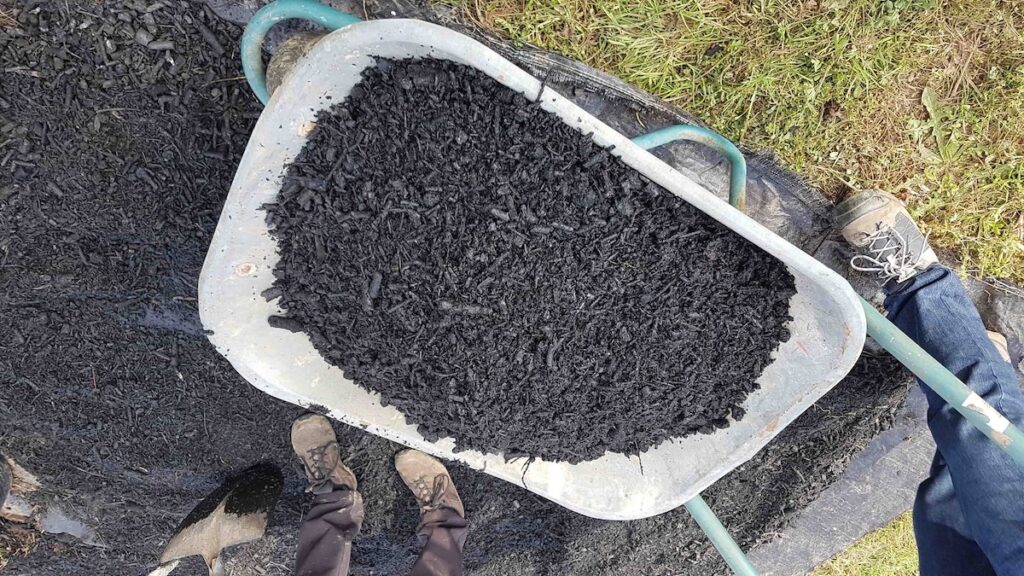Scientists in Edinburgh are investigating the use of a charcoal-like substance as a ‘carbon-eating’ building material.
Biochar is produced by heating organic biomass from food, paper, agricultural and forestry waste in the presence of little or no oxygen.
It has already shown promise as a sustainable building material that can improve insulation, air quality, and moisture control while allowing buildings to act as ‘carbon sinks’ – taking up more carbon from the atmosphere than it releases.
Replacing as little as 1 per cent of a fine aggregate with biochar in cement can improve compressive strength by around 10 per cent.
A team of scientists led by Dr Mehreen Gul from Heriot-Watt University hope the project will support interdisciplinary research aimed at advancing sustainability in the construction industry.
Dr Gul, assistant professor in architectural engineering at the university, said: “The construction sector accounts for nearly 40 per cent of global energy-related carbon emissions, making it essential for us to find new ways to reduce its environmental impact quickly but, most importantly, safely.
“Our research aims to provide an evidence base for adopting biochar within building projects to contribute significantly to carbon reductions, helping the government meet net zero emission targets and providing reassurance to industry and the wider public about its use.
“More research is now required to explore how buildings can ‘eat carbon’ – essentially soaking up more carbon from the atmosphere than they release, and we believe biochar could play a crucial role in developing this work.”
The two-year interdisciplinary project brings together experts in civil engineering, building physics and social science from Heriot-Watt University, Aston University and the University of Birmingham. The team will work with industry partners, policymakers, and end-users throughout the research process.
The project aims to develop a framework to help encourage the use of biochar in the UK building industry and beyond. This could help to transform the traditional sector by providing new pathways for sustainable construction practices and materials.
